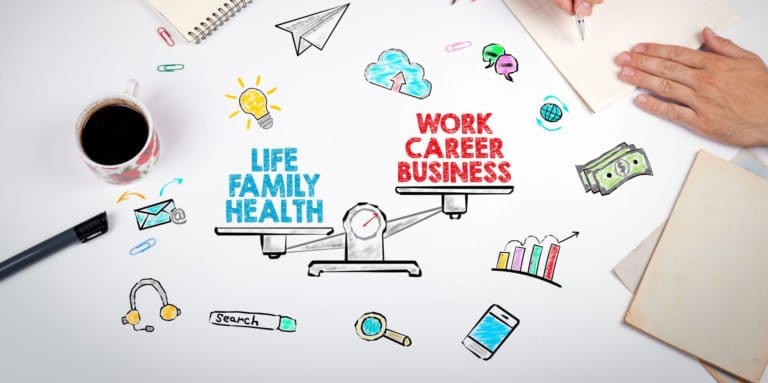There’s an old joke that a man goes in to a psychiatrist and says, “Doc, you have got to help me – I have a terrible low self esteem problem.” “Hey, Marta!” the psychiatrist calls out to reception, “Did you just let this loser in?”.
Of course, in reality, low self esteem is no laughing matter. Having an irrationally low opinion of yourself is linked to a wide range of emotional and mental health issues and in some cases to self-harm. Navigating through life’s trials and tribulations can become extremely difficult and troublesome.
That said, there is no guarantee that high self esteem alone is a good thing. Totalitarian dictators, violent criminals and “slash and burn” corporate ‘sharks’ often have pretty high opinions of themselves. What everybody needs is sensible, healthy, and realistic self-esteem.
Unhealthy self esteem takes two forms: Internal and External
The internal unhealthy form borders on grandiosity or on narcissism, where someone cares little about what others think. They behave egotistically and consider themselves irrationally ‘special’ and not required to follow rules or simple good behaviour.
This unhealthy internal form of self esteem is sometimes linked to various forms of anti-social behaviours and can be almost (or actually) delusional, with a corresponding sense of entitlement and disregard for others’ welfare.
The external unhealthy form is dependent on external praise, fame, reward, and recognition. Think of some famously unstable actors or musicians. This self esteem is built on very shaky foundations. It will come tumbling down if the external ‘props’ holding it up are removed when they hit one or more of the obstacles that most typical people face at some point. These crashes can be spectacular and devastating.
Healthy self esteem, by contrast, is when you are genuinely settled and happy in yourself. You know who you really are, you have a realistic view of strengths and weaknesses, and you can tolerate criticism and setbacks. It is the only sustainable model that will get you through good times and bad. You will be able to handle stress, disappointments, crises, rejection and even total failure, much more easily.
Finally, we should throw in a little Sociology with our Psychology. It can be that self esteem issues aren’t really located in the self. Families, institutions, groups, or even whole cultures and society itself can be dysfunctional. And that can lead to feelings of low self-worth in individuals.
When reading articles that sometimes miss this point entirely, be aware that it can be the circumstance you live in, and not you, that is partly or wholly the root cause of the problem.
So, let’s look at some practical help if you have issues with self esteem, or self-harm.
Practical Ways to Improve your self esteem
Here are a few simple but effective ways to build up healthy self esteem – one that will be robust enough to take knocks along the way:
1. Find out what you really are good at
It used to be fashionable to say that we can all do anything if we put our minds to it. Well, we can’t all run like Usain Bolt. We can’t all handle 11-dimensional string theory. And we can’t all sing Nessun Dorma like Pavarotti. Nor, sadly, or not so sadly – will many of us score a goal in a World Cup. Or become a rock star.
Yes, of course, having the will and the training can get many people very far in many things – but we are all different and are all unique. Much unhappiness in life – and low self esteem – can come from trying to be people we are not and longing after impractical goals. So, it’s important to find out what you are actually good at and build a solid foundation on that.
2. Don’t accept negative labels from others
We mentioned in the introduction the notion of the initially mentally healthy individual who is placed under negative pressure from their family, groups they belong to, or even the wider society. Low self esteem can be linked to external negative labelling around class, ethnicity, age, culture, beliefs, gender, sexuality, physical appearance, and so on. Sometimes the journey towards self esteem involves rejecting the negative labels that others apply.
3. Accept genuine praise
Modesty and self-deprecation are okay up to a point. But sometimes we need to say ‘yes you are right’ to praise when it is justified. Even if we don’t succeed at something, the fact of trying can be praiseworthy – and accepting that praise is a healthy thing, too.
4. Get some proper external help
If your car breaks down, you are likely to go to a mechanic. If you have a bad tooth, you are likely to go to a dentist. Fixing your self esteem issues without any external specialist help is really difficult – just like fixing your own car or taking your own tooth out.
Expert help will give you insights and practical tools into all the issues below:
- How low and high self esteem affect relationships
- The link between assertiveness and self esteem
- Building self esteem and self-love after a relationship breakup
- Helping a partner, family member, or friend with low self esteem
- How to love someone who has low self esteem
- The difference between ego and self esteem
- The link between self esteem and self-harming
- Why low self esteem can be linked to anorexia, bulimia and other eating disorders
We don’t have to be billionaires, presidents, or pop stars to have good self esteem. We can just be ourselves. Anyone can be a good friend, parent, or partner and that is the real worth of any of us.
Conclusion
While counselling and therapy for low self esteem takes place at an individual level, it’s worth restating that our modern western society is often part of the real cause of low self esteem. It’s nothing like the supportive and tightly-knit groups that humans and the ancestors of humans lived together in.
Research showed many common forms of emotional issues were extremely rare in the few remaining largely uncontacted hunter-gatherer groups that were still being studied in the last Century. Now we are bombarded with marketing and advertising designed to make us feel dissatisfied and ill at ease with ourselves. We are pressured today, from cradle to grave, to be other than who we often truly are and to be dissatisfied with ourselves.
All that means is, if you are suffering low self esteem, up to and including self-harm, it is really not about you.
Help and support is here
Society puts tremendous pressure on each of us – pressure which is sometimes contradictory and very difficult to handle.
Modern ‘nuclear’ families can also be the setting for unnatural pressure on you. Our education system, too, can be a pressure cooker that leaves some people with an inferiority complex.
What we are saying here is ‘it’s not you’ and that practical and effective help in building healthy and sustainable self esteem is available.



